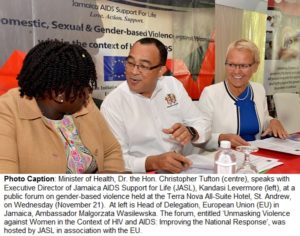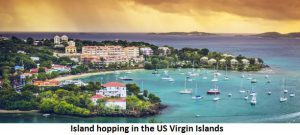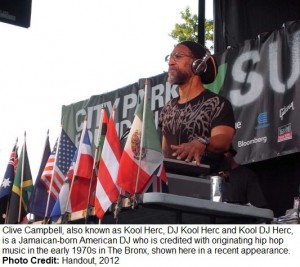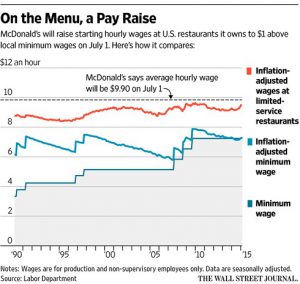Go Lean Commentary
“Train up a boy according to the way for him; even when he grows old he will not turn aside from it.” – The Bible Proverbs 22:6 NWT
This Biblical proverb has proven true time and again. People do tend to be a product of their environment and their early molding. Most times the discipline and attitudes learned at home forms the adult character that people become.
This is good … and bad!
- Broughtupsy – scruples; to have manners;
May also be spelt Brought-upsie
WestIndian/Caribbean in orient – Barbados.
Example 1: Child, you ain’t got no brought-upsy?
Translation: My Child, have you not any manners?Example 2: What, you ain’t got no brought-upsy?
Translation: I can’t believe you’re doing that. Were you not taught any manners as a child?
This concept refers to the “ethos” (a Greek word meaning “character” that is used to describe the guiding beliefs or ideals); we see that it is not just a personal attribute but also refer to a community characteristic. Thus the word community ethos.
- the fundamental character or spirit of a culture; the underlying sentiment that informs the beliefs, customs, or practices of a group or society; dominant assumptions of a people or period: In the Greek ethos, the individual was highly valued.
- the character or disposition of a community, group, person, etc.
Here is another popular Adage, common-sense expression:
Charity begins at home.
Everyone knows that and assumes that. The good actions you exert towards others – strangers – is an exercise that starts at home, towards family. This is also true in the reverse: the bad actions you exert towards strangers, tend to stem from the practice to malevolent behavior towards family. Thusly, domestic violence to connect to violent crimes, think rape.
This is not just some academic thesis; this is real life and real bad, in Jamaica right now. See these two supporting news stories:
- Domestic Abuse – 15 percent of women experience violence – see Appendix A below.

- Tourist Rapes – A Black-eye for hospitality towards foreigners – see Appendix B below.

The movement behind the book Go Lean…Caribbean seeks to reform and transform Caribbean society; we advocate for empowerments and mitigations for the economic, security and governing engines of society. We want to create jobs, entrepreneurship, foreign direct investments and other economic opportunities, but we recognize that we must have a welcoming society to succeed in this endeavor. So we must therefore also advocate for domestic violence mitigations and best practices for domestic tranquility. This means that we have to be equally focused on family support services, early childhood development, juvenile delinquency, youth gang interventions and other social services initiatives; and this focus is best optimized for a regional scope. This actuality was clearly pronounced in the opening Declaration of Interdependence (Pages 12):
xvi. Whereas security of our homeland is inextricably linked to prosperity of the homeland, the economic and security interest of the region needs to be aligned under the same governance. Since economic crimes … can imperil the functioning of the wheels of commerce for all the citizenry, the accedence of this Federation must equip the security apparatus with the tools and techniques for predictive and proactive interdictions.
Mind your own business …
… this bad ethos has often been echoed when reflecting on the incidences of dysfunctional families in our communities. But now we see, from the above, that the by-product from these families can endanger the business climate for all society. It is only logical that victims of crime, and their loved-ones, will not re-engage that destination for touristic activities. So we urge everyone to reject this bad ethos; it is in fact all of our business. We must reform and transform … for the Greater Good.
“It is the greatest good to the greatest number of people which is the measure of right and wrong” – Jeremy Bentham
The Go Lean book – available to download for free – serves as a roadmap for the introduction and implementation of the technocratic Caribbean Union Trade Federation (CU), for the elevation of Caribbean society – for all member-states. This CU/Go Lean roadmap features many social-economic empowerments and mitigations, but first, these 3 prime directives:
- Optimization of the economic engines in order to grow the regional economy to $800 Billion and create 2.2 million new jobs.
- Establishment of a security apparatus to ensure public safety and protect the resultant economic engines.
- Improve Caribbean governance to support these engines, including a separation-of-powers between the member-states and CU federal agencies.
The Go Lean book provides 370-pages of turn-by-turn instructions on “how” to adopt new community ethos, plus the strategies, tactics, implementations and advocacies to execute so as to reboot, reform and transform the societal engines of Caribbean society. Domestic violence and rape tend to victimize women. So the Go Lean book specifically – on Page 226 – presented an advocacy to help women; featuring this title: 10 Ways to Empower Women. Notice the summaries, plans, excerpts and headlines from that page here:
| 1 | Lean-in for the Treaty for a Caribbean Single Market The CU treaty is a regional re-boot allowing for the unification of the region into one market, thereby creating a single economy of 30 member-states, 42 million people and a GDP of over $800 Billion. The CU will assume the primary coordination for the region’s economy and security needs. With half of the population being women, the CU must allow for empowerment and protection of women, even collaborating with NGOs for Women advocacies.This mandate is not automatic as many CU nations still maintain Third World prejudices derived from Natural Law. |
| 2 | Equal Pay & Entrepreneurial Rights |
| 3 | Equal Education Rights |
| 4 | Equal Property Rights |
| 5 | Women’s Health The CU will facilitate healthcare solutions with a view of the supplemental needs for women. The CU will start with HPV vaccinations; then ensure the proper OB/Gyn care for child-bearing women. The CU will add to the vigilance for breast cancer awareness and other post-menopausal conditions, arranging for cradle-to-grave Women’s Clinics. |
| 6 | Law & Order SVU Women are usually the victims for domestic violence and sex crimes. Many US jurisdictions have added Special Victims Units to give these types of crimes the proper attention. The CU will train, facilitate & monitor local [Caribbean] efforts. |
| 7 | Family Planning Rights |
| 8 | Child Support Orders |
| 9 | Focus on Families The CU mandate to incentivize the repatriation of the Caribbean Diaspora will re-unite families back in their homeland. Mothers and Grandmothers will rejoice with the prospects of sharing their daily lives with their now-remote families. |
| 10 | Aging Population |
The Go Lean movement have previously elaborated on issues related to domestic and inter-personal violence. This field is both an art and a science. Consider this sample of previous Go Lean commentaries here, and Appendix C VIDEO:
| https://goleancaribbean.com/blog/?p=14482 | International Women’s Day – Protecting Rural Women |
| https://goleancaribbean.com/blog/?p=13063 | Gender Equity without a ‘Battle of the Sexes’ |
| https://goleancaribbean.com/blog/?p=7490 | A Lesson in the History of Interpersonal Violence – Domestic |
| https://goleancaribbean.com/blog/?p=2709 | Caribbean Study: 58% Of Boys Agree to Female ‘Discipline’ |
| https://goleancaribbean.com/blog/?p=2201 | Students developing nail polish to detect date rape drugs |
| https://goleancaribbean.com/blog/?p=695 | Help for Abused Women Depicts Societal Defects |
Yes, helping to mitigate family violence helps to mitigate crimes against our tourists – who are really trading partners. We must always consider a holistic view of the social problems of families. We all want good ‘Broughtupsy’. As a community, we are a part of some family; good families make good communities; and good communities make good countries. Everyone wants to be in a good community, whether it is to live, work or play.
So we must all do the heavy-lifting of helping our brothers and protecting our sisters. This is not easy and at times may not be welcomed – echoing the sentiments: mind your own business – but it is our business to promote and protect our “family”. We urged everyone to lean-in to this good ethos … and to the Go Lean roadmap for a better Caribbean community. 🙂
Download the free e-book of Go Lean … Caribbean – now!
Sign the petition to lean-in for this roadmap for the Caribbean Union Trade Federation.
—————–
Appendix A – JAMAICA: Nearly 15 per cent of Jamaican women experience violence from a male partner
#Kingston – Nearly 15 per cent of all women in Jamaica, aged 15 to 49, who have ever married or partnered have experienced physical or sexual violence from a male partner in the previous 12 months. This was revealed by Health Minister, Dr. the Hon. Christopher Tufton, as he addressed a public forum on gender-based violence on Wednesday (November 21), at the Terra Nova All-Suite Hotel in St. Andrew.

He was citing statistics from the Ministry’s soon-to-be released 2017 Knowledge, Attitude, Belief and Practice (KABP) report, which covers intimate-partner violence. He said that based on the report, the most prevalent violent acts experienced by women are: being pushed or shoved (17.7 per cent); being slapped or having something thrown at them that could inflict harm (16.8 per cent); and being hit with a fist or something that could cause harm (15.6 per cent).
He noted that 3.7 per cent per cent of the respondents reported being afraid of what their abuser would do if they refused to have sexual intercourse.
“Women who are the victims of sexual violence in particular, we know, are more vulnerable to HIV infection, given that HIV transmission risk increases in violent or forced-sex scenarios,” he pointed out.
He argued that the fear of stigma associated with HIV may prevent women who are victims of sexual violence from being tested or otherwise from returning for the results and that those living with HIV may not even report the incident out of fear of being re-victimised.
Dr. Tufton said that the Ministry of Health cooperates with the Ministry of Justice in handling reported cases of sexual violence, and although there are some challenges the Ministry is determined to overcome them.
“We are already on course to ensure access to care and the best possible health outcomes for our people, including women and girls and key populations” he said.
According to the Minister, a first step is education and raising awareness among those tasked to deliver care, to ensure that they do so, not only with efficiency but also with sensitivity.
“There are more than a few stones to dodge and hurdles to scale violence against women and gender-based violence. However, the Ministry of Health is committed and, working together with our non-governmental partners and other stakeholders, including the European Union (EU), we will get there,” he pledged.
The forum on gender-based violence was staged by Jamaica AIDS Support for Life in association with the EU, under the theme ‘Unmasking Violence against Women in the context of HIV and AIDS: Improving the National Response’.
Dr. Tufton hailed the staging of the session, noting that “this is an important public discussion on an issue that has far-reaching sustainable development implications for Jamaica”. He said that gender-based violence cannot be ignored, based on the wide-ranging effect that it is likely to have on the country.
“Violence against women and gender-based violence as drivers of HIV infection among Jamaicans require urgent and sustained collaborative action in the public health interest,” he said.
Source: Posted November 23, 2018; retrieved December 23, 2018 from: http://magneticmediatv.com/2018/11/jamaica-nearly-15-per-cent-of-jamaican-women-experience-violence-from-a-male-partner/?fbclid=IwAR0kSF26GcdUxYT_dbF1sxLvbD0bDO0sFBz1QlWsHwPoVopTs7iQPfE1Qxw
—————–
Appendix B – Title: Jamaica resorts facing a ‘historic’ sexual assault problem
Posted October 30, 2018; retrieved December 23, 2018 – In a dark laundry room at a Jamaican Sandals resort, pinned to the floor by a hotel lifeguard, a Michigan teenage girl lay paralyzed with fear as the man bit her lip and raped her, violently robbing her virginity.
 When her mother found her after the assault, trembling and holding herself in a hallway, the 17-year-old couldn’t speak. She could only point to a metal door.
When her mother found her after the assault, trembling and holding herself in a hallway, the 17-year-old couldn’t speak. She could only point to a metal door.
Behind the door, her friend was being gang-raped by three resort lifeguards.
This is the Jamaica that the U.S. State Department has repeatedly warned tourists about. This is the island paradise that the government says has a pervasive sexual assault problem, the place where two Detroit women were raped in September, and an estimated one American is raped each month.
Over the last seven years, 78 U.S. citizens have been raped in Jamaica according to State Department statistics from 2011-17. The victims include: A mentally handicapped woman in her 20s; an Indiana mother gang-raped by three Cuban soccer players in a resort bathroom stall; a 20-year-old woman raped by two men in her hotel; two Detroit mothers raped at gunpoint in their room; a Kent County teenager and her 21-year-old friend, gang-raped by lifeguards in a locked laundry room at the resort where they were staying.
…
Jamaica unable to handle problem
According to the Jamaica Tourist Board, more than 1 million Americans visit Jamaica every year, accounting for about two-thirds of all visitors to the island, whose blue-green coastal waters, sunny weather and laid-back reggae vibe draws billions in tourism dollars.
Americans are the biggest contributors, spending more than $3 billion in Jamaica in 2017, a 15-percent increase from the $2.6 billion they spent in 2016. Jamaica also has enjoyed a steady increase in American tourists over the last five years, from 1.1 million U.S. visitors in 2013 to 1.5 million in 2017.
But while tourism has grown, so have warnings about sexual violence, as evidenced by the numerous State Department travel advisories and crime reports that refer to sexual assaults as a “historic concern” in Jamaica.
Jamaica, however, has made some progress on this front. The State Department said that hotel sex assaults involving Americans dropped in 2016. For example, out of 18 Americans raped in Jamaica that year, just one occurred at a resort.
But the problem crept back in 2017: Out of the dozen of Americans sexually assaulted in Jamaica that year, six were attacked in resorts at the hands of employees.
“Sexual assaults against American guests by hotel employees at resort hotels on the north coast have again risen,” the State Department wrote in a 2018 report.
…
To read the full article, click here: https://www.usatoday.com/story/travel/2018/10/30/jamaica-resorts-tripadvisor-sexual-assault/1816675002/?csp=chromepush
Related: Oct. 2: Raped in Jamaica: Woman turns gun on attacker who had climbed on her balcony at 5-star hotel
—————–
Appendix C VIDEO – Babyface – How Come, How Long – https://youtu.be/lBPEkEOUUp0
She was oh so beautiful
- Category: Music

 This Dead President – the Savior of the American Union – is right! A homeland cannot have unity, harmony or leverage if it is divided.
This Dead President – the Savior of the American Union – is right! A homeland cannot have unity, harmony or leverage if it is divided. Press Release:– Tourism has enormous potential to promote Caribbean regional integration. So said Jamaica’s Tourism Minister, Edmund Bartlett who, at the time, was addressing the 54th annual general meeting of the St. Lucia Hotel & Tourism Association, which was held Friday (June 20) at Harbour Club St. Lucia. He was the featured guest speaker at the AGM.
Press Release:– Tourism has enormous potential to promote Caribbean regional integration. So said Jamaica’s Tourism Minister, Edmund Bartlett who, at the time, was addressing the 54th annual general meeting of the St. Lucia Hotel & Tourism Association, which was held Friday (June 20) at Harbour Club St. Lucia. He was the featured guest speaker at the AGM.


 On this day 45 years ago, Hip-Hop was forged as a musical genre …
On this day 45 years ago, Hip-Hop was forged as a musical genre …




 Education Think Tank, Educate Jamaica, has estimated that it will take a minimum monthly salary of $250,000 to stem the flow of mathematics and science teachers leaving the classroom.
Education Think Tank, Educate Jamaica, has estimated that it will take a minimum monthly salary of $250,000 to stem the flow of mathematics and science teachers leaving the classroom.





























